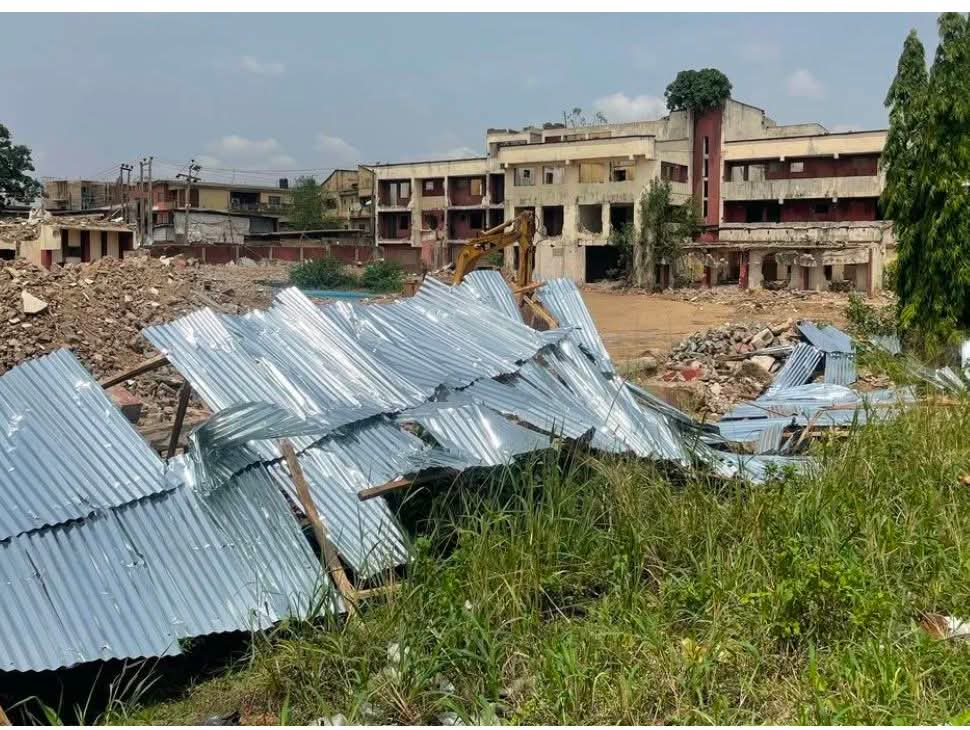A behavioural scientist’s constant concern is with projects and policies that seek to bring about material and physical change without also bringing about a behavioural shift. For a considerable amount of time, Anambra State has been reduced to a place where people travel back for Christmas, to marry, and to be buried. Although Anambra is a really wealthy state, it is not a livable one yet, and the Soludo government has set out to change that. It’s such a difficult task.
It is evident to Soludo that city quality of life indexes are about living conditions—that is, how good or appropriate a location is for habitation. Many indices measure more subjective factors in addition to the availability of clean water, clean air, enough food, security and shelter. These subjective elements include a city’s ability to foster a sense of community and security and provide welcoming environments in which everyone, especially young people, can develop social skills, a sense of autonomy, and identity without feeling pressured to relocate to safer or better places for their survival and well-being.
An excellent place to live should have well-designed, public spaces that encourage local activity by providing parks and family-friendly recreational opportunities. Combining offices with retail, entertainment, and educational spaces is a smart method to encourage a variety of uses for urban space while making efficient and thoughtful use of the city. Stated differently, a well-planned and ordered city is one that is livable. That’s precisely the goal that Soludo has set for his structural adjustments.
Under Soludo, infrastructure construction is accelerating at a breakneck pace. The majority of roads built, even those built less than ten years ago, have failed or are deteriorating and are being rebuilt alongside brand-new ones. Throughout the state, there are about 500 km of roads in various stages of completion. Many of these roads are already finished and just waiting to be commissioned during Soludo’s second year in office.
Unprecedented attention has also been paid to important areas of the Anambra economy and development, including youth empowerment, education, security, digitisation, and youth’s acquisition of digital skills.
However, the ethical rebirth is one area that will play a significant role in the process of creating and transforming Anambra into a livable city state. A twenty-first-century city or state is made up of two prongs: the physical development of the state is one, and the residents’ changing behaviours is the other.
Like other Igbo states, Anambra bases its fundamental identity on marriage and burial. Up until now, Anambra burial has been a significant burden for the living. The custom of burial had evolved into a kind of funfair that the locals referred to as a “celebration of life”—a term that would be more accurate to refer to it as a “celebration of death.”
The wealthy of Anambra extraction do not intend to return to Anambra State, not even in retirement. They would rather reside in Enugu since it is a more ordered and planned city. For weekends and nightlife, people from Anambra are drifting to Asaba and Enugu. The unfriendly Anambra environment made worse by insecurity is another reason why many enterprises were leaving Anambra State for Asaba, Lagos, Ogun, and other locations before Soludo’s coming. Soludo inherited the insecurity and the unlivable conditions and has been addressing it head-on.
Making Anambra a habitable metropolis is a difficult task that Soludo set out to accomplish. He has addressed a number of issues, one of which is burial of the dead, which has grown to be an unnecessary burden for most families who are pressured by society and peers to take on more than they can afford.
In order to bury their deceased, several families were forced to sell their land. Many more reach out and take out loans for burials. Some construct entirely new homes that the deceased have never lived in, or they completely renovate their existing homes, all to ensure that the funerals adhere to peer and social norms.
In an attempt to live up to these vacuous ideals, many families have plunged into poverty from which they never really recovered. In response to the threat posed by the practice of burying the dead at expense of the living, Soludo created the Anambra State Burial Law, which sets aside only one day for interment and does away with unnecessary expenses that were inserted purely as social graces to make the funeral spectacular and carnivalesque. In fact, before Soludo arrived, burial in Anambra State had turned into a tragic contest; my burial was larger than yours.
Anticipated opposition to Soludo’s funeral law and its execution has arisen. The wealthy that use funerals as a platform to flaunt their wealth are not happy. But for Soludo, creating enterprises that create jobs and empowering the youth are the better ways for the wealthy and powerful from Anambra extraction to flaunt their wealth rather than indulging in the ridiculous practice of celebrating death.
Sadly, though, the church—which rightfully should applaud the governor for taking such strong action—is also protesting the burial law and its execution, which have resulted in a more than 50% cut in funeral costs. The church in Anambra State is deeply involved in politics and does not respect the canonical rule that separates the state and the church.
Governor Soludo lost his father soon after the enactment of the state burial law, and buried the man within one day and in full compliance with its express and extant provisions. If the governor has led by example, other Anambra citizens ought to follow the example without complaints.
Governor Soludo is nevertheless pursuing the law’s implementation in spite of resistance, even from unexpected quarters. Sanitising funeral customs is one behavioural shift that Anambra needs to make the state habitable. The governor should also give equal consideration to marriage customs as yet another area that needs sanitising.
The cost of traditional marriage has also increased, deterring younger people from getting married. The age at which men in Anambra can get married now is getting close to forty. If sixty years is the usual retirement age, then at forty one wonders when the couple will be able to raise their kids before retiring?
In order to make marriage and burial in Anambra State more respectable, inexpensive, and less scandalous, Soludo must be given support in order to bring about these major changes. Some would wonder: At this point, should Governor Soludo be taking marriage and burial so seriously? Without a doubt, the answer is yes. As was already mentioned, there are behavioural components to making Anambra a livable state or city. One of the most important fundamental changes that Ndi Anambra needs to make is to change the way they marry and bury their dead. They need to reset their mentality on a number of issues and marriage and burial are tops of the range.
Yes, Soludo is on the right track. His opponents are busily taking things out of context and making light of these fundamental changes—which were engineered by the governor of solutions. These opponents play politics with everything. Even when they understand that a change will result in a better life, many nevertheless struggle with resistance to change. Ndi Anambra, who have built exquisite homes in their villages but are unable to remain there due to unlivable conditions and insecurity, flow with the change for their own good if they truly want a livable state, one where they can return to and live in, feel completely at home, and never feel the need to flee to Asaba or Enugu.
With Soludo’s policy solutions and the deft and full implementation and cooperation of Ndi Anambra, the state will definitely claim its pride of place in no distant time—not just a state of billionaires but a state where such great men can truly call home and long to return to and stay.
·Dr. Law Mefor, an Abuja-based forensic and social psychologist, is a fellow of The Abuja School of Social and Political Thought; drlawmefor@gmail.com; Twitter: @Drlawsonmefor





